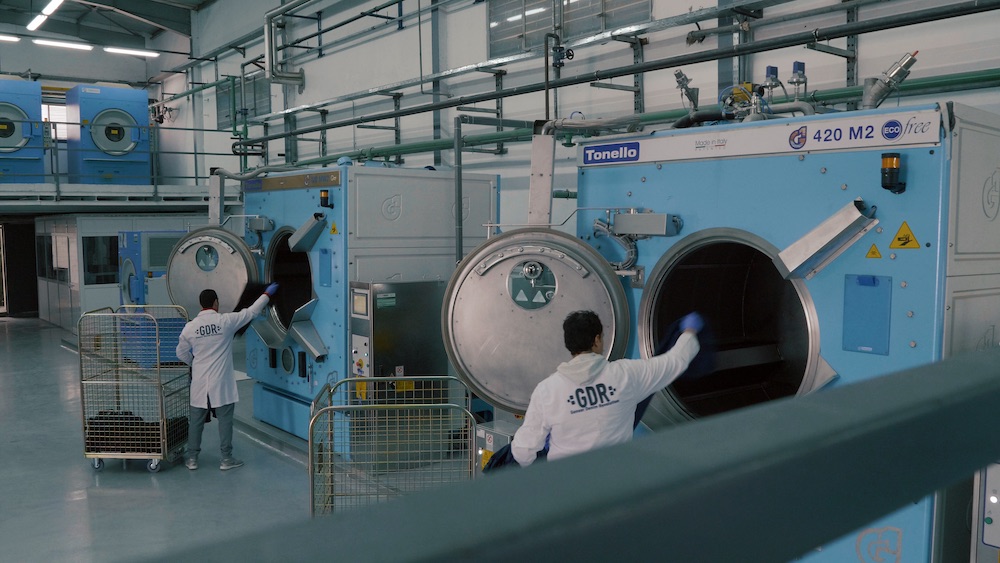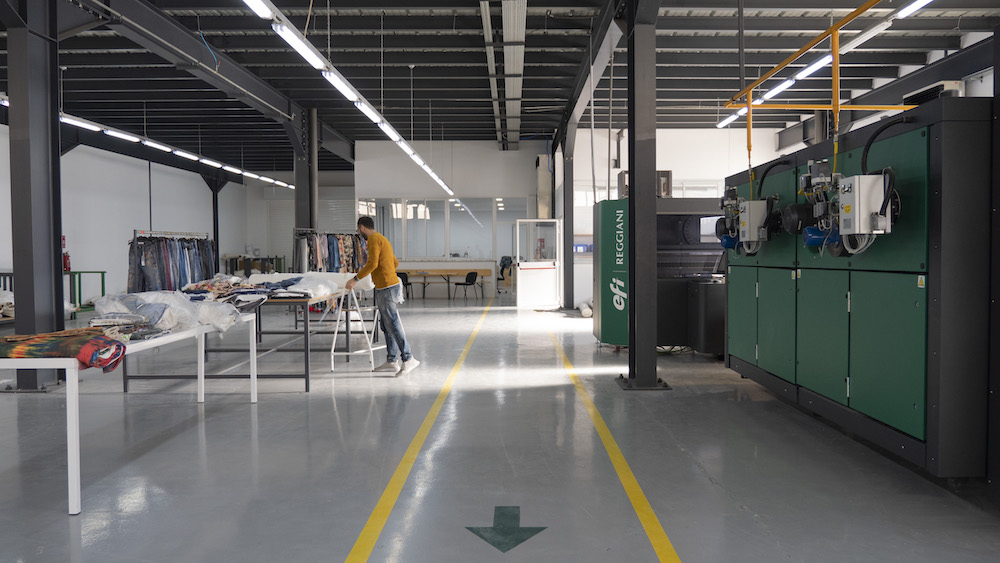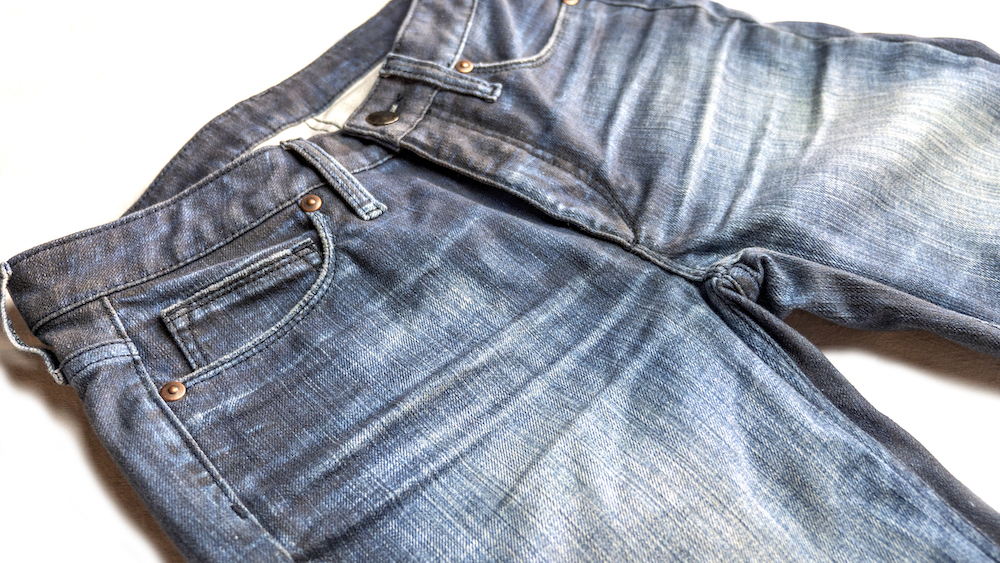Interview with Alvise Arcaro, Creative Consultant at Gonser Group
The history of Gonser Group has its roots in 1938 with the opening of the first white laundry in Germany. With the advent of the 90s and the flourishing of the textile industry, the family-run company becomes a Group expanding its services to the fashion sector with a particular inclination for denim washing solutions. The name Gonser brings with it a successful entrepreneurial story capable of interpreting market changes for over three generations now.
Counting thirteen companies over two continents, Gonser Group is a consolidated vertical production reality that is in step with the latest technologies in most of the clothing categories and can count on partnerships with the best-known European and US brands. Gonser Group’s export is 100% addressed to the European market. Main export destinations are Germany and Italy.
What is the Gonser Group range of products? And specification?
Gonser Group deals with denim and sportswear at 360 degrees but within the two main production poles, it also offers a vertical service on total looks made of cotton, synthetic fibers, wool and dyed garments.
Any Denim styles: from jeans, jackets and shirts; to chinos, dresses, shorts, t-shirts, and woven and knitted wear are available both in CMT and Full Purchase. In 2023 the Group introduced a new service for padded clothing garments.

How do you evaluate denim apparel and denim fabric manufacturing sector in Tunisia?
Tunisia has a long experience in the denim industry in fact it’s ranked as the fifth main supplier of jeans to Europe.
Tunisia’s success is certainly due to a progressive growth following the Arab Spring in 2011 where jeans exports doubled, reaching its peak in 2022 when the export increased of a further 12% compared to the same period of 2021 overpassing the value for more than 1 billion of dollars.
The commitment of manufacturing companies together with government initiatives has increasingly attracted the younger generations to specialize in the textile sector to the point of generating a pool of qualified professionals.
Jeans made in Tunisia are the most expensive when it comes to external suppliers, however the quality and business conduct in the area is rewarded by the most virtuous certified mid-high-level brands that seek environmental policies and ethical processes in the manufacturing of their products.
Unfortunately, together with the growth of jeans exports from the country, the Revolution has contributed to the disappearance of Tunisian denim fabric manufacturers. Another con is definitely Tunisia’s unstable economical and political situation which keeps on affecting the real potential of the country.

How do you predict 2023 year for global textile and apparel industry and specially for Denim sector?
2023 promises to still be an uphill year for the recovery of the global textile sector. The costs of raw materials and energy have affected everyone with no holds barred.
The increasingly stringent European policies on sustainability and production processes will clean up the industry from the explosion of the fast fashion phenomenon, bringing quality products back into vogue.
We believe that denim will always play a leading role in the fashion system, however, tomorrow’s consumer will have ever greater awareness of their purchases and it will be crucial for companies like ours to stay up to date with the highest technological and ethical standards.
let us know about your latest products, new collections, research and development, new investment and …
In the last two years, together with an important renovation of our production plants, we invested in digital printing technology. After seeing the incredible potential of the latest machinery on the market, we started developing a product that is really sustainable and innovative. Mimikry, this is its name, is a patent pending garment fully digitally printed and GOTS certified.
Starting from an organic bull denim base we afterward print piece by piece any kind of washing effect avoiding all the impactful stages that would normally takes to realize the same product.

Gonser Group also invested in renewable energy
In 2017 we successfully installed our first water recycling system by Electro-Coagulation in Grombalia and we are now equipping our second main laundry in Korba with the very same technology that help us to reuse 80% of our wastewater.
All our structures have an Energy Management System automated and controlled by sensors which help us to detect overconsumption in real-time.
Another big investment we made are photovoltaic panels on top of the roofs of our structures generating 1.4MWc and taking our energy efficiency to reach 40% of savings and 26% surplus.
Gonser group also includes a chemical products company and this allows us to always be one step ahead on all sustainable alternatives in the field of washing and dyeing for our treatments as well as for R&D.
We almost abandoned the use of pumice stones and heavy chemicals to encourage the use of technologies like Lasers, Ozone, new ZDHC-certified enzymes and oxidants, microbubbles machines and Up system for our productions.
Sustainability is an important subject for textile manufacturers all around the world, what is Gonser Group sustainability policy and what you did for this?
Being environmentally sustainable is at the centre of our belief as an organization.
Fashion is the second most polluting business on the planet and our responsibility comes from the awareness that reducing the impact our business has on the environment it’s a journey to face with concrete and planned actions for a better future.
Gonser Group is in compliance with ISO140010 requirements, laws and obligations but we are committed to do much more using resources more efficiently, limiting our emissions and reducing waste.
We feel a duty to give value to the territory in which we operate for the benefit of local communities, ensuring that all our employees have the training, skills, knowledge and resources to meet the requirements of our internal standards.
Constantly improving and reviewing our performance using feedback from clients and benchmarking our work with stakeholders supporting every proactive initiative to drive a positive change.
The mentioned investments on sustainable energy and water recycling are a clear signal of our policy.
Tunisian textile industry is very powerful and among top exporter in the North Africa, how do you evaluate the reasons ? How do you evaluate government support for textile industry?
The textile industry is a leading sector in Tunisia.
Now that traveling and moving goods has become more expensive and complex, Tunisia finds itself in a strategic geographic proximity to European countries, benefiting from important trade agreements with European and Middle East markets.
It is also a matter of flexibility and faster delivery which translates into guarantee and transparency of the production chain for brands
It’s a matter of fact that among the North African countries Tunisia is one of the most attractive for foreign investors. It has the best compromise between cost of living and availability of skilled labour ranking first in north africa for graduates, 35% in engineering and Textiles related fields.
In 2019 a textile pact was signed between the Presidency of the government, Utica and the Tunisian federation of textile and clothing aiming to include Tunisia between the top five exporters of textiles and clothing to Europe.
Gonser Group international standards and certificates:
Gonser Group adheres to the highest standards and certifications in the panorama of the textile sector in terms of sustainability and work welfare.
- GOTS – Global Organic Textile Standard
- Oeko Tex Standard 100
- Higg Index
- Organic Blended Content Standard
- VF Corporation Standards
- Fair Wear Foundation
- SMETA-FWF-VF audit
- ZDHC water waste criteria
- On going implementation of IS09001V2015-ISO14001V2015-ISO45001V2018
- SA800V2014 standards





















